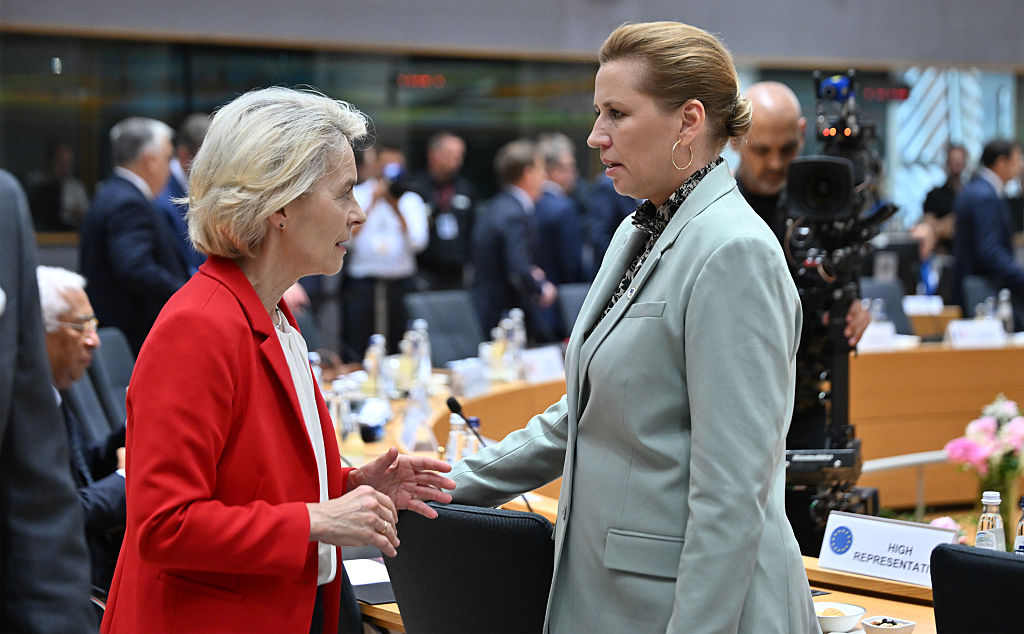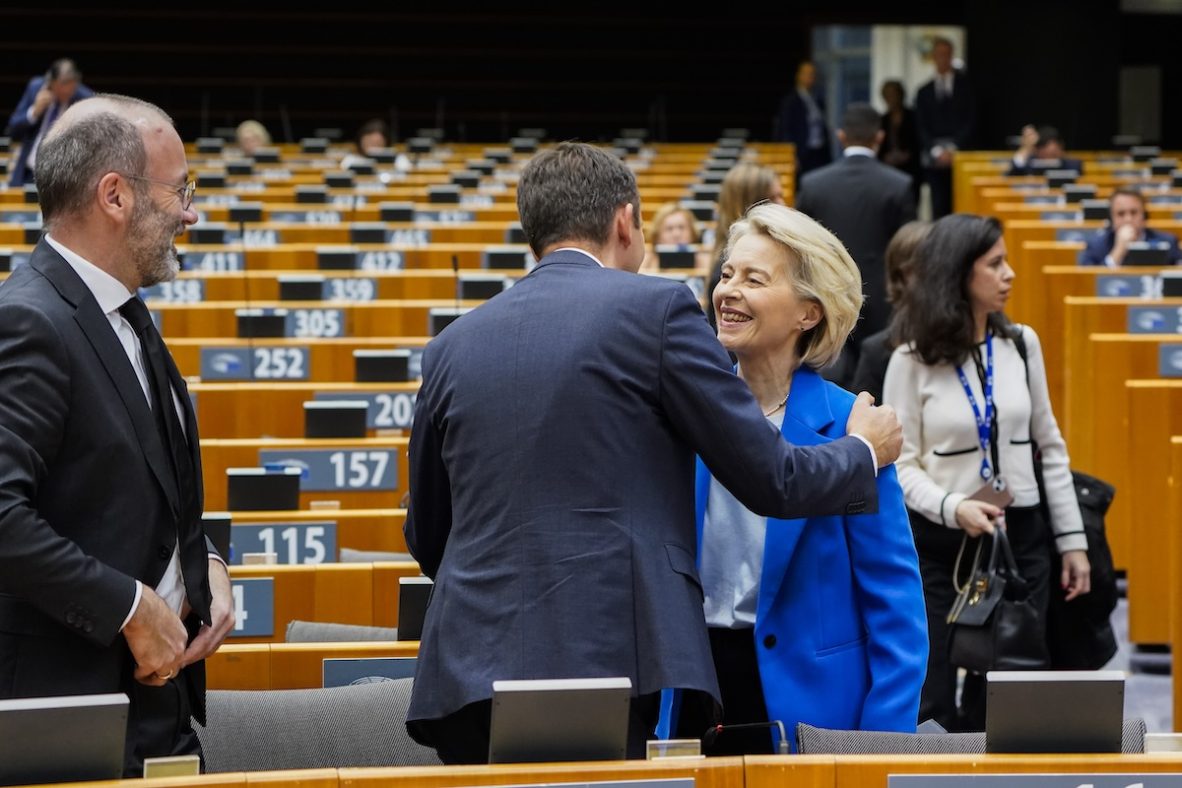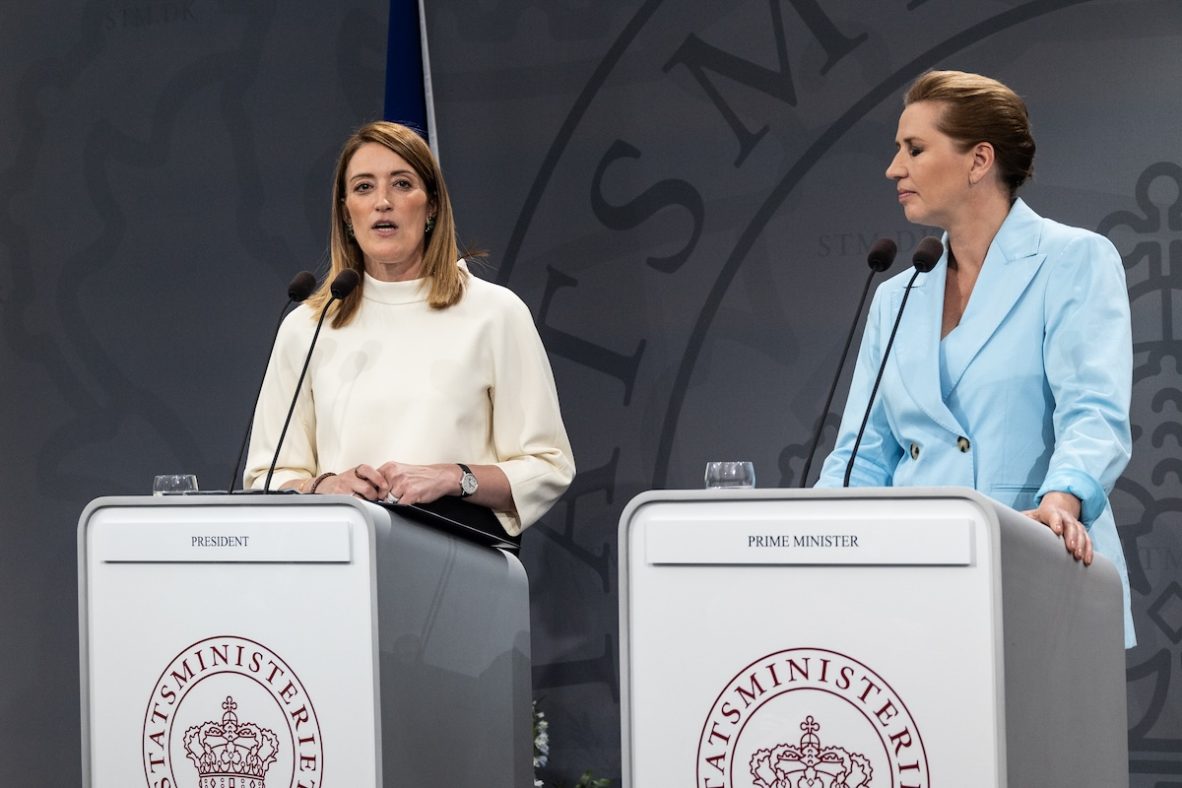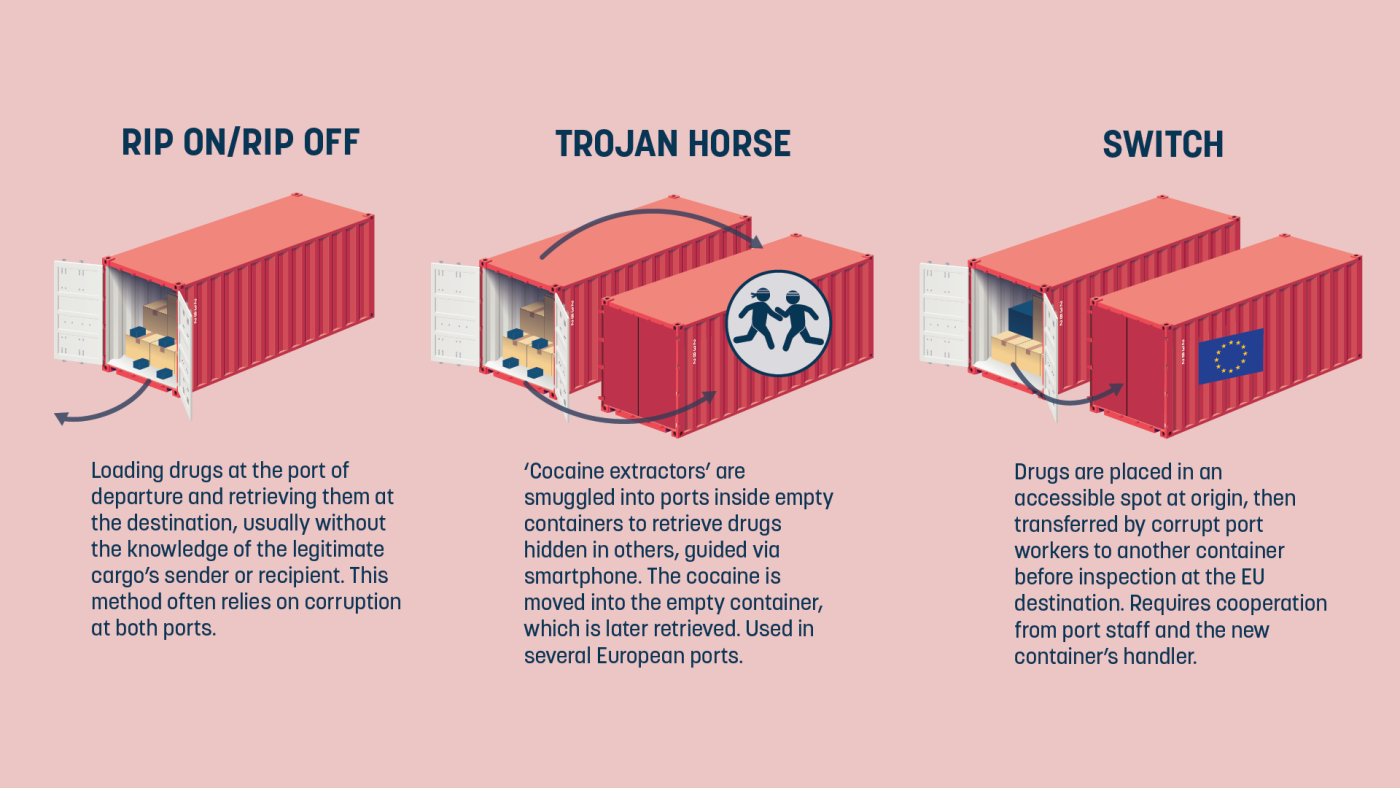EU doubles down on Ukraine reparation loan after Belgian pushback
Ursula von der Leyen refused to even mention an alternative option, floated by Belgium's Bart De Wever, of using common EU debt to plug Kyiv's colossal budget needs

EU leaders reiterated on Tuesday their support for a €140 billion loan plan for Ukraine based on immobilised Russian assets, just days after Belgium refused to back it and floated common EU debt as an alternative.
Speaking to journalists in Stockholm following a meeting of Nordic European leaders, Commission President Ursula von der Leyen said that the plan, which would draw on Russian sovereign assets held by Brussels-based clearinghouse Euroclear, remains “legally sound”.
However, she admitted that “technical questions” need to be answered to assuage Belgium’s fears about potential legal and financial risks to Euroclear, and the stability of the euro area.
The Commission chief also pointedly refused to mention an alternative option of using common EU debt to plug Ukraine’s colossal budget needs, despite being directly asked about this possibility. Belgium’s Prime Minister Bart De Wever floated the idea after last week’s fractious summit of EU leaders.
“I think it is an important step forward that we look at the immobilised Russian assets,” von der Leyen said.
Standing alongside von der Leyen on Tuesday, leaders from Sweden, Finland, and Denmark all echoed the Commission chief’s remarks, with Danish Prime Minister Mette Frederiksen going as far as to argue that “there is no alternative to the reparation loan”.
“I really like the idea that Russia pays for the damages they have done and committed in Ukraine,” said Frederiksen, whose country currently holds the rotating EU Council presidency. She added that it is “necessary” for EU leaders to agree on the loan at the next EU summit in December.
Finnish Prime Minister Petteri Orpo similarly emphasised that the loan is “the only reasonable solution” to plug Ukraine’s funding needs, which the International Monetary Fund estimates are around €55 billion for 2026 and 2027. Orpo said he was “optimistic” that the Commission would address Belgium’s concerns.
Europe discovers De Wever is harder to convince than Trump
European leaders arrived at Thursday’s summit in Brussels buoyed by signs that Donald Trump was…
4 minutes

The leaders’ comments come after Belgium last week successfully watered down European Council conclusions that would have given the EU executive the green light to develop the scheme into a full legal proposal.
Belgium holds most of the assets that were immobilised shortly after Russia’s full-scale invasion of Ukraine in February 2022, and is especially wary of the risks posed to Euroclear’s reputation if EU countries fail to provide guarantees to repay Moscow if the bloc’s sanctions on Russia are suddenly lifted. This fear is also shared by the European Central Bank.
Belgium is also demanding that other EU countries pledge to use Russian assets in their own jurisdictions to fund the scheme. France, Luxembourg, and Cyprus are among the other EU countries believed to hold Russian sovereign assets across various private banks.
Common debt vs immobilised assets
In a press conference following last Thursday’s summit, De Wever strongly suggested that common debt – which was issued during the COVID-19 crisis and would also require the unanimous backing of all EU countries – would be a superior alternative to the reparation loan.
“The big advantage of debt is that you know it,” De Wever said. “You know how much it is. You know how long you will bear it. You know exactly who’s responsible for it. The disadvantage of the Russian money is that you have no idea how far the litigation will go, how long it will take, and what you will encounter in problems.”
However, he admitted that this would be politically “very problematic”, given strong opposition from many influential ‘frugal’ EU countries, including Germany and the Netherlands.
According to people familiar with the matter, the Commission is likely to come forward with various options for funding Ukraine within the coming weeks.
These alternative options include moving forward with the original proposal while assuaging Belgium’s specific legal and financial concerns; broadening the scheme to encourage other EU countries to harness Russian sovereign assets held in their own jurisdictions; and issuing common debt or even grants to finance Kyiv.
EU ambassadors are set to convene on Wednesday morning in Brussels, where they are expected to discuss the matter further.
(vib, mm)









